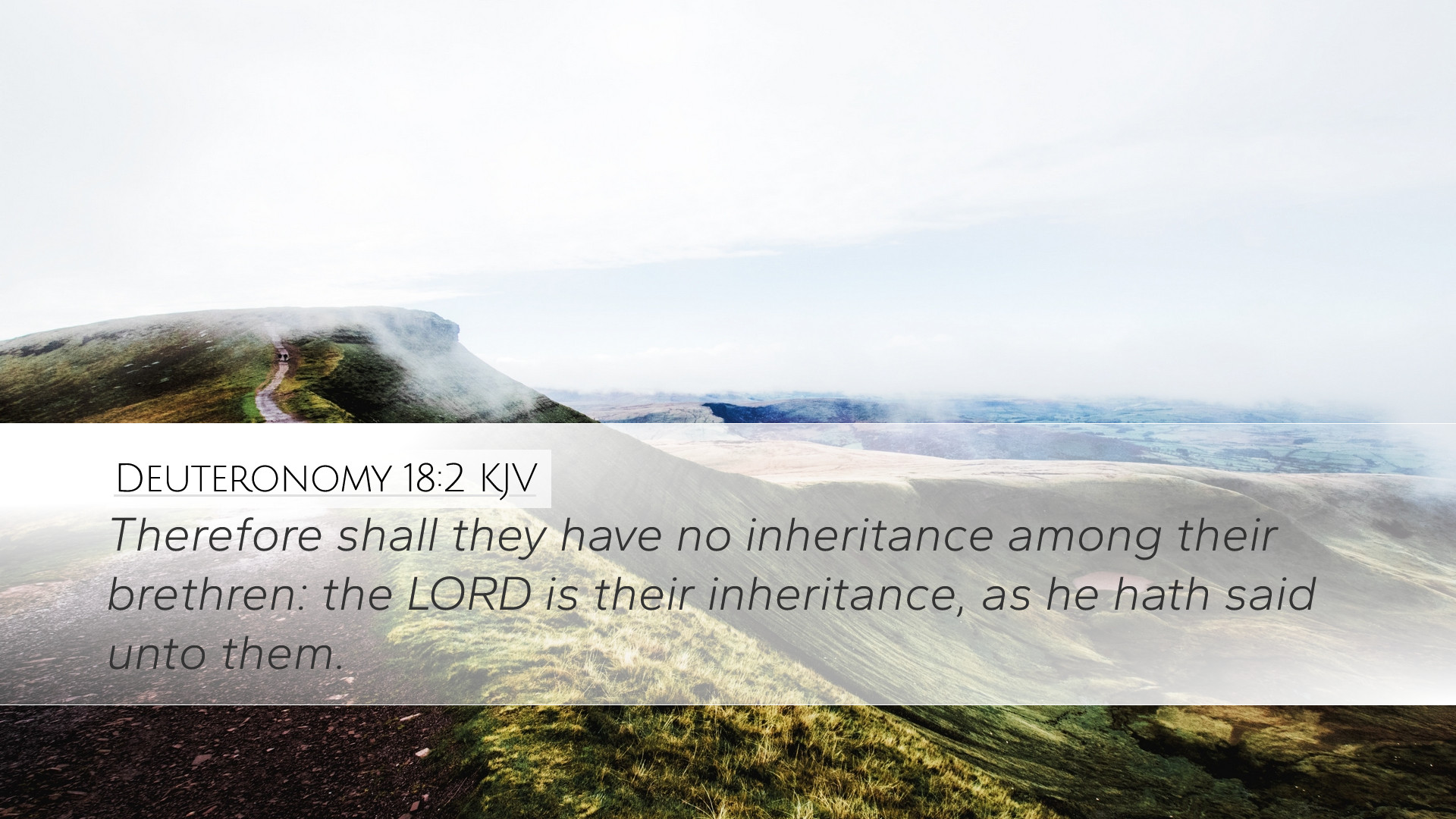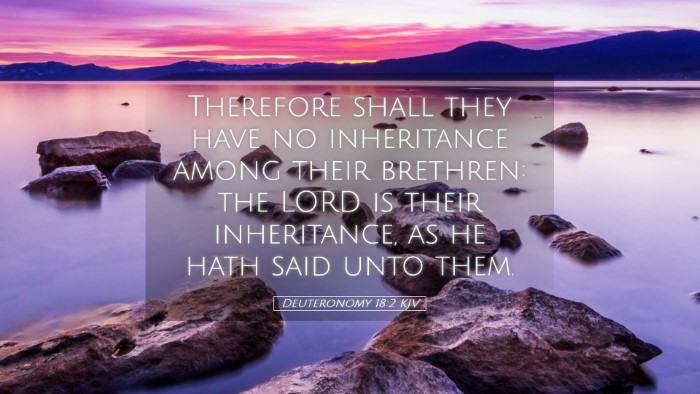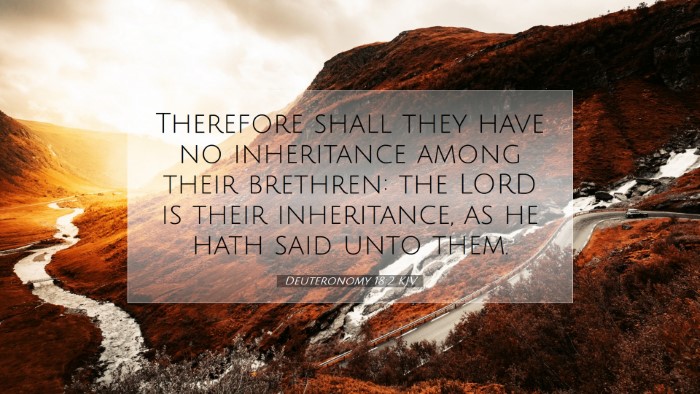Commentary on Deuteronomy 18:2
Bible Verse: "Therefore shall they have no inheritance among their brethren: the Lord is their inheritance, as he hath said unto them."
Introduction
This verse, nestled within the broader context of Deuteronomy 18, addresses the unique position of the Levitical priesthood among the tribes of Israel. The Levites, chosen by God for service in the tabernacle and later the temple, did not receive a territorial inheritance like the other tribes. Instead, their inheritance was the Lord Himself, highlighting their dedicated role in ministering to the people and the sacred duties associated with worship.
Theological Significance
Theologically, this verse emphasizes several crucial themes:
- God’s Sovereignty: The choice of the Levites underscores God's sovereign selection of individuals and families for specific purposes within the community of faith.
- Divine Provision: By stating that "the Lord is their inheritance," the passage teaches that God Himself provides for those engaged in spiritual service, ensuring their needs are met through the faithfulness of others.
- Separation for Service: The lack of a physical inheritance signifies a life wholly devoted to God’s work, separating the Levites from material concerns and positioning them as mediators between God and the people.
Reflections from Public Domain Commentaries
Matthew Henry's Commentary
Matthew Henry highlights that the Levites were not to engage in agricultural or land-owning enterprises but were intended to focus entirely on their priestly duties. He interprets this as a model for those in ministry who may be called to prioritize spiritual responsibilities over material gain. Henry elaborates that the exclusion from inheritance serves to enhance their dedication and commitment to God’s work, illustrating the principle that spiritual leaders should look to God for their sustenance and support rather than earthly possessions.
Albert Barnes' Notes on the Bible
Albert Barnes comments that the Levites' unique position affirmed their status as God’s chosen servants. His analysis emphasizes that this arrangement was both a privilege and a responsibility; the Levites were called not only to serve but to lead the people in worship. Barnes notes that this role came with particular protections and provisions, as the Lord ordained cities of refuge and designated tithes to support them, ensuring that the Levites could fulfill their sacred duties without distraction:
- He observes that the command illustrates God's care for His servants, who by divine ordination must seek Him in all things.
- Barnes also discusses the broader implication for all believers: that like the Levites, they are called to find their security and identity in a relationship with God rather than material possessions.
Adam Clarke's Commentary
Adam Clarke provides intricate historical and linguistic insights, explaining that the notion of inheritance implies a divine right and shared communal responsibility. He notes that the Levites were to be compensated through the offerings and tithes of the people, which reflects a communal support system founded upon gratitude and acknowledgment of their spiritual service. Clarke argues that:
- This system of support underscores the essential bond between spiritual leaders and the community, reinforcing the call for believers today to sustain their spiritual leaders.
- He also raises the point that the priestly role symbolizes Jesus Christ, the ultimate mediator, who fulfills the requirements of the Law and becomes both the sacrifice and the High Priest.
Practical Applications
The insights from these commentators extend beyond ancient Israel, offering relevant applications for modern believers:
- Value of Spiritual Leadership: Understanding and honoring the role of pastoral and church leaders in the community as those who serve God and others divinely transforms collective life.
- Dependence on God: Just as the Levites were wholly reliant on God's provision, individuals in ministry today should cultivate a life of faith that trusts in God to meet all needs.
- Community Support: The call for communal support for spiritual leaders remains pertinent, urging congregations to provide both material and spiritual backing to their leaders.
Conclusion
Deuteronomy 18:2 encapsulates profound truths regarding the nature of God's provision, the role of spiritual leadership, and the call to trust wholly in the Lord. The reflections of Matthew Henry, Albert Barnes, and Adam Clarke remind us that these principles are timeless, encouraging both spiritual leaders and their communities to seek first the kingdom of God, recognizing that the true inheritance lies in a deep and abiding relationship with the Lord. For pastors, students, and scholars, this verse serves as a foundational text that inspires ongoing contemplation and discussion about the nature of calling, service, and divine provision.


